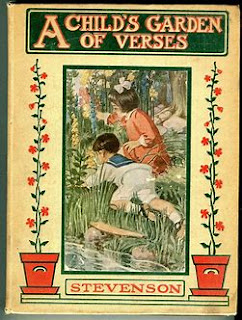No one gets into politics for patriotic reasons. It is a career which requires nothing more than a silver tongue and a gullible electorate, a sucker born every minute - fickleness and the God-given ability to sway the crowd in your direction.
Mark Antony knew this as did Coriolanus. So do snake oil salesmen, televangelists, and scammers. Money is there to be made, easy pickings for the morally ambiguous, ambitious politicians who can smell money from coal-mining hollers to the inner city.
Harper Fielding was one such politician, born and raised barefoot and poor in the rural South, tempted by wealth and glamour with the gumption to go out and get it. "Now, Harper", said his mother over a boiling vat of soapy laundry, "don't get too big for your britches".
But big is what the young Harper wanted more than everything, and politics seemed the way up and out of the squalor of backwoods poverty. When Longworth (Worthy) Belt came courting votes, driving up in his Buick Roadmaster, escorted by Miss West Virginia and her runner-up, and passing out walking around money like it was penny candy, Harper knew what he wanted more than anything - to sit in that very same Congressional chair, taste the wine of the Capital, and bring home the bacon to his folks.
The great thing about American democracy is that you need no pedigree, no special note in Who's Who, or no fancy degree to succeed in politics. All you need is way with words, charm, and social ease; and so it was that Harper began his political journey, first as Class Secretary, then President of his class, then the first nominee from Archer's Hollow to ever be nominated for the UN World Peace Day conference in Munich.
He took to public representation like a duck to water. He was engaging, attentive, and congenial, and found himself the center of attention from an international coterie of charming young women. "What's it like in Archer's Hollow", they asked, almost in unison, fascinated by this young man of bright intelligence and sexual allure.
He fed their interest with interwoven stories of coal dust and mud and fragrant spring times. It was A Child's Garden of Verse and Upton Sinclair all in one, a delightfully romantic story. The young women couldn't get enough of it and of him.
Berthe Pedersen, the representative from a small farming district of Denmark was his first lover. He knew it would happen, but not so easily. When the next morning he counted his chips and tallied his ledger, he could not believe his good fortune; and courted and won Sofia from Lebanon, Esther from Israel, and Lotte from Argentina. He had done nothing to deserve their charms or attention; nor did he merit the prizes awarded him for his international understanding. It had to be politics, he now knew, which would be his calling,
It was not difficult to rally support for election to the state legislature. He was the only candidate from Archer Hollow and the surrounding district who had never lost his roots but shaken the clods of dirt from them. He was what every man in Archer Hollow wanted to be, never could be, and certainly was not. "I am for the people", Harper said in his first stump speech and was greeted by a round of applause which was less for him, but for what he had become - an international jet-setting star.
His every word was taken as ex cathedra, received wisdom, and the gospel truth. The more he wove platitude, nostrum, and happy talk into one marvelously diverse quilt, the more he was cheered. In five months of politicking he had not offered one scintilla of economic promise to the voters, yet he won by a historic margin. The gauge had been set, the standards high, and the only question was when he would move to Washington.
Ah, Washington, Camelot, the Holy Grail, the be-all and end-all of the American experience. There he would prosper among giants and return to Archer Hollow a rich, powerful, and admired man.
This time he was up against a more accomplished and polished opponent; but the man had been caught in the web of inevitability, There was no way that this rube, this cracker, this....nothing could possibly beat him, a man of prosperity (coal, merchandise, and land) and reputation; but such hubris had been the downfall of politicians ever since Agamemnon, and was the end of Bobby R. Melville. Not that Melville had not tried - his platform of mine reform, water management, and social justice was based on solid facts and figures - but Harper's simple allure, golden aura, and silver tongue were unbeatable.
Washington was more than Harper Fielding ever expected - an Elysium Fields of wine, women, and song. He was sought after from the moment he arrived. He needed no introduction, no Georgetown matronly sponsors, no letters of introduction. Every so often there comes a man who, through no effort of his own, is completely, purely, and absolutely desirable; and in a country like America whose citizens require only likeability, such men are guaranteed successes.
Of course the other freshmen Congressmen were jealous of him. They had none of his universal appeal and had made it to Washington the old fashioned way - ward politics, favors, and money. They could not possibly compete with this naturally-endowed crowd-pleaser, this Saul of Tarsus, this Jesus of Nazareth; but they tried. They opposed him on every bill brought before the House, challenged his every speech, all to no avail. He was the Teflon Man, the impervious one, the one without sin.
And all this without him lifting a finger. Just as his rise to Washington was accomplished as neatly as a Picasso sketch, his reign was no less than that of The Sun King. He was untouchable, a shoo-in every two years, and a lock for the Senate.
He was the darling of the morning talk shows, a headliner on both MSNBC and Fox, and the most sought-after politician since the young Jack Kennedy. The medium is the message, wrote the sociologist and cultural commentator Marshall McLuhan, and his theories were proven lock, stock, and barrel in the person of Harper Fielding. He and the media were one, a seamless, twinned ying-yang paired energy. No matter what he said on television, it was accepted without argument. Fake news was never an issue because he said nothing; and that, the most astute observers knew, was that.
Even in a censorious, MeToo, No Means No era, he became the Casanova of the Potomac, and journalists, politicians, and the people cheered him for it. He was the JFK of a dull, two-pants-suited Congress. He was charming, witty, and elegant, seen with starlets, academics, and business women.
At the same time millions of dollars in campaign contributions poured into his war chest. He asked for nothing, but his coffers filled. Re-election was a done deal, and the Harper Fielding era of the Senate began. Whispers were heard about a run for the presidency.
There is nothing shameful about the rise to prominence of such a man. How could there be when our electoral system was not set up to choose the most qualified for office but the most popular? Popularity, not performance has always been the key to success in America, and politics is simply the bellwether. Harper could have gone to Hollywood or Wall Street, both places attuned to appearances and the gift of gab, but he showed a kind of ironic patriotism in choosing Washington, the place he was most suited for.
The people of Archer Hollow never forgot him, and a statue to his memory is still standing on the grounds of the Archer County courthouse.







No comments:
Post a Comment
Note: Only a member of this blog may post a comment.